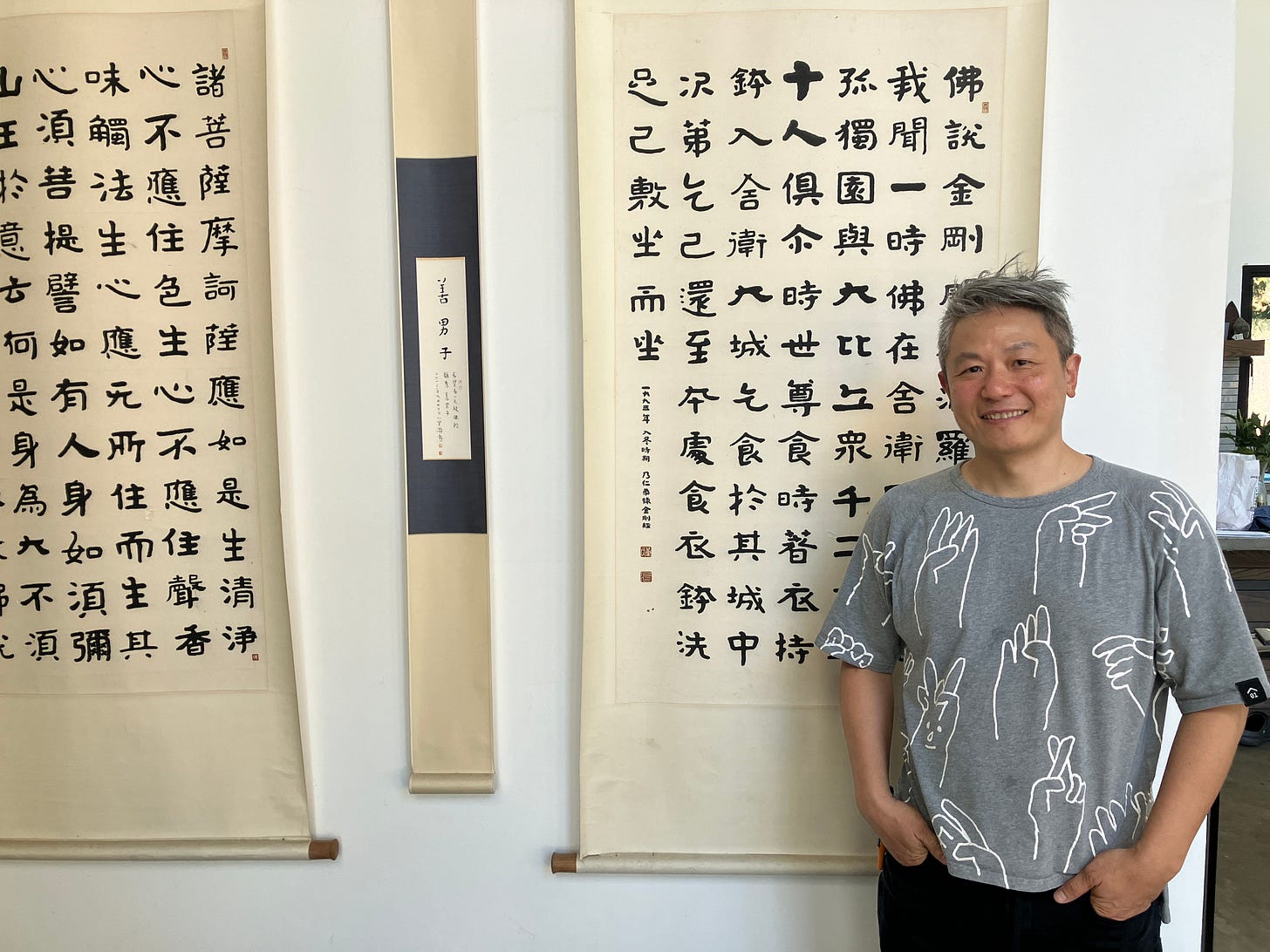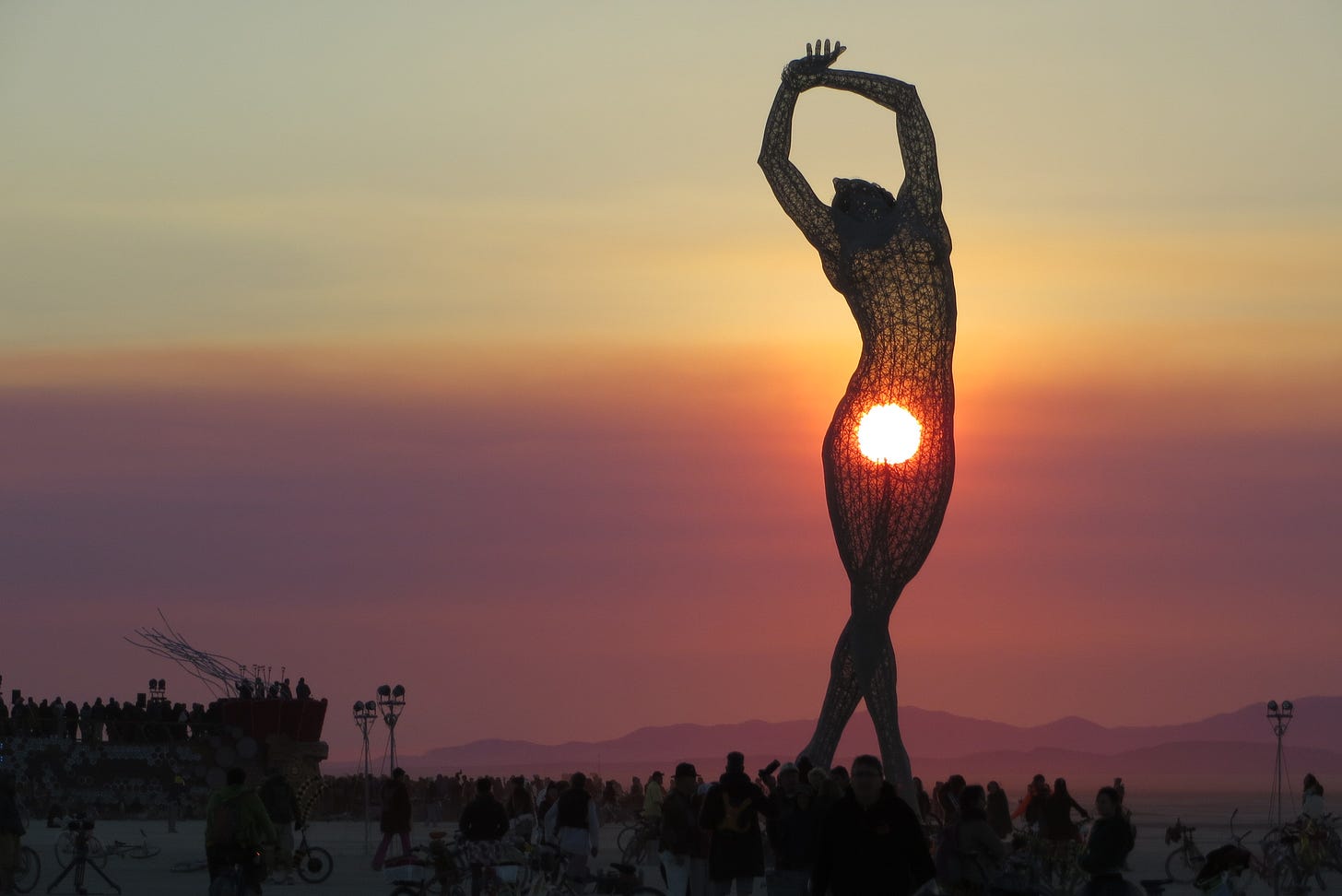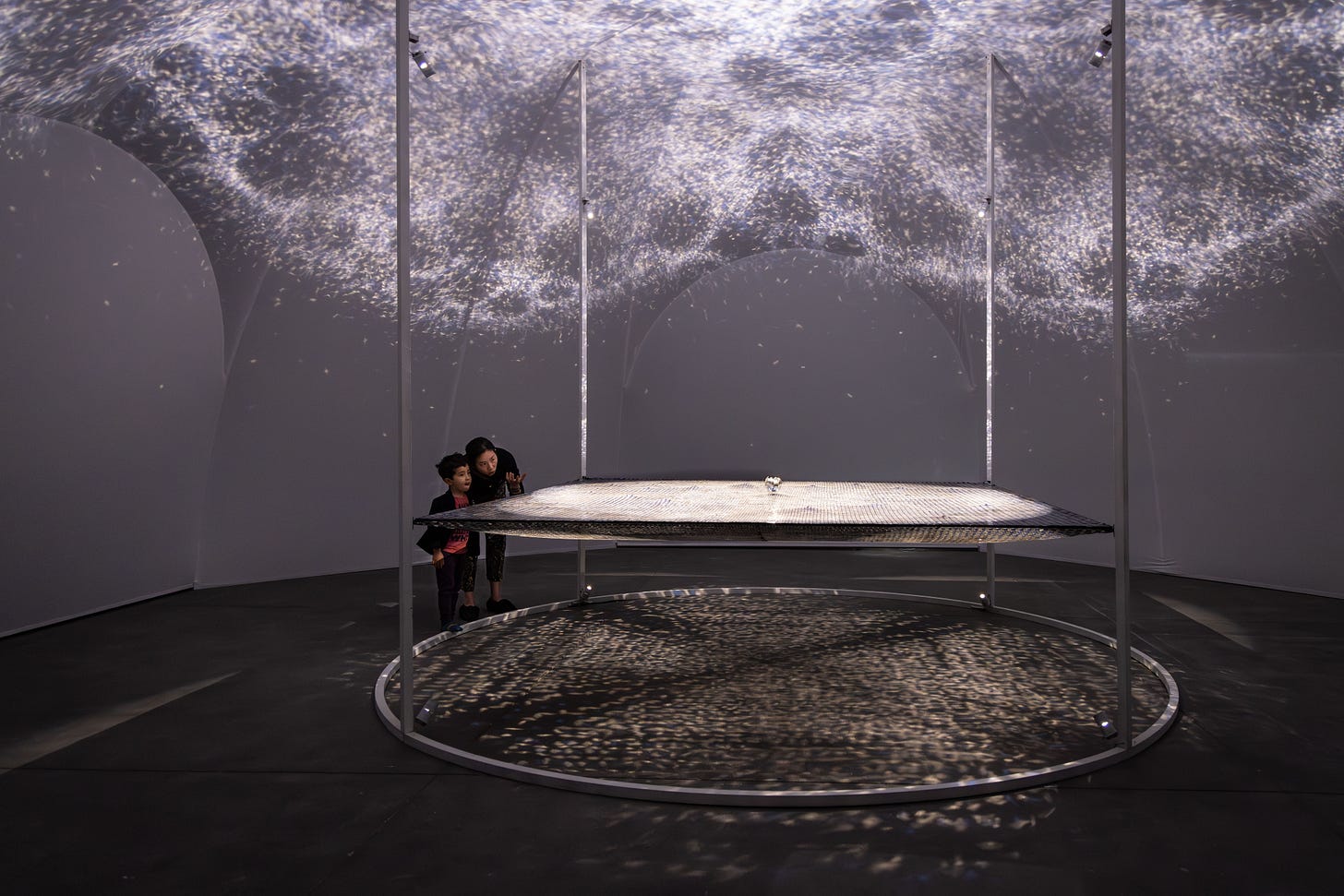Welcome, readers, to Jeffji’s Big World, where I explore the connections between my travels in the material world and my inward journey with Parkinson’s.
“The Lotus blooming on the water embodies beauty and hope, representing transformation and rebirth. Through this artwork viewers can embrace the reality of impermanence and find inner peace and stability in a world full of unpredictability.” – Nick Dong
During my career as a journalist I’ve had the privilege of meeting many extraordinary writers, musicians, and visual artists. My most recent encounter was with the quietly dazzling Nick Dong, a Taiwan-born artist who now lives in Oakland. Eleven of Dong’s Tibetan Buddhist-inspired installations—visually entrancing and technically breathtaking—are on display at the Yerba Buena Center for the Arts, in San Francisco, through August 25th.
The signage at the entrance to the exhibit (and I only now made the connection between the words entrance and entrancing) includes this phrase: “The artist’s immersive works invite engagement—sparking beauty in vulnerability.”
I experienced that unlikely state in one of Dong’s artworks. As I sat within the “Dharma Wheel of Ego and Egolessness”—surrounded by countless moving images of myself, seen from multiple angles—my “self” dissolved, and I had what I could only call an out-of-body experience. My mind detached from my physical form, and seemed to atomize into the ether. I entered a state, like a dreaming infant, of beautiful vulnerability.
“This artwork is deeply inspired by the movement of the Dharma Wheel, creating an immersive space where viewers experience self-existence and the disillusion of the ego.” – Nick Dong
“I think the beauty part is my job,” Nick explained when I visited his self-built home/studio near the Oakland Zoo. “I'm making sure there is a certain aesthetic with the work. But the vulnerability part is revealed when people approach and encounter the artwork; how they see themselves in it.”
Dong is currently immersed in a project called Mendsmith, which—to my mind—perfectly embodies the melding of beauty and vulnerability. “The Mendsmith Project began when a dear friend asked me a simple question in the wake of her husband’s passing: What do we do with the wedding ring left behind by a departed spouse? Can an artist sift through grief to find memories of joy?” Have a look.
Even before my body began to diverge from my presumptive identity, I was already what you might call vulnerable. My emotions have always lurked close to the surface. I cry easily. Which is often embarrassing (unless I’m home alone, binging out on re-runs of Friday Night Lights.) It’s common for one of my lady friends to look at me sideways at the emotional climax of any given movie (yes, even Barbie) and ask, “Are you crying?” Most of the time, yes—though I hide my face, pretending it’s allergies.
A few weeks ago at dinner my friend JC, who is under a lot of stress, declared that she needed a good cry. Our mutual friend B came to the rescue. “I’m a great co-crier,” B said. “Any time you like.” Her offer addressed an unmet need. The conversation turned to whether or not co-crying was a marketable skill, or at least a good concept for a “Cry-Baby Camp” at Burning Man. (I wouldn’t be surprised if one already exists....)
Has my diagnosis of Parkinson’s made me even more vulnerable? Physically, yes—and also to emotional triggers. Take Inside Out 2, for example. I really did not have a deep personal investment in the pubescent female protagonist Riley, or her successful integration with a high school ice hockey team. What did me in was the character/emotion named Joy—the idea that Joy might be called back into one’s life, even after a long absence (something I’d like to believe). The sudden internalization of that possibility welled up in me, and tears rolled down my cheeks. “Are you crying?”
Physically speaking, it’s a different story. I’ve never felt especially vulnerable to bodily harm. For much of my life, honestly, I’ve felt almost a sense of immortality. The perils I’ve survived, on Himalayan treks and scuba dives and in open-cockpit airplanes, long gave me the impression of having a charmed life.
That notion has been dispelled. But the threats I’m facing today don’t come so much from sharks or rockslides as from my own proprioceptive hurdles: Climbing out of a Mini-Cooper. Turning around in the shower. Navigating my way into a booth at a crowded restaurant. Trying to dismount from my bike, nearly falling over, and realizing I need a step-through (aka a “girls’ bike”). Talking to an attractive woman and feeling the boundaries (mine, preemptively) go up. Because these are all places where I might potentially get hurt.
The ability to be vulnerable enough to let go emotionally is beautiful. The fear of wiping out near the grocery store’s bike rack, not so much. Parkinson’s has forced me to look for ways to protect myself, many of which carry the stigma of creeping disability: canes, shower handles, a carry-out request at Trader Joe’s.
As Nick Dong said, to “embrace the reality of impermanence, and find inner peace and stability in a world full of unpredictability.” Inner peace maybe, through reflection and equanimity. Stability... well, that may eventually require a walker. But not just yet.








Aww, I love reading that you connected with Joy and that you cried tears of remembrance. Joy - that ineffable spark of something moreness that has us step into and through the darkest of moments. I love you Jeff.
I feel that I am stepping into that time now. The Spirit is willing but the flesh is weak. I am learning to be gentle with myself. Sometimes I feel ashamed of being older. Yes, and finding inner peace with all the changes that go on within myself and in the world. Thank you Jeff for sharing as you do, your sharing makes me feel human!